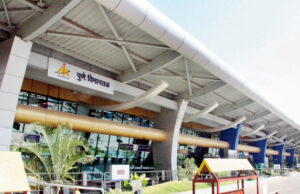Upper Executive and Premium Motorcycle Owners Become More Sensitive to Fuel Economy, J.D. Power Finds
SINGAPORE: 7 May 2019 — An increase in petrol prices has resulted in owners of upper executive and premium motorcycles placing more importance on fuel economy when determining their product satisfaction, according to the J.D. Power 2019 India Two-Wheeler Automotive Performance, Execution and Layout (2WAPEAL) StudySM released today.
Amongst the factors that the study measures, upper executive motorcycle owners singled out fuel economy as the factor with the highest relative importance. The emphasis on fuel economy cited by this group of owners is highest amongst all two-wheeler segments. Additionally, the relative importance assigned to this factor by premium motorcycle owners has increased to a level similar to those for other two-wheeler segments.
The study also finds that the greater emphasis on fuel economy is largely due to an increase in fuel prices. While owners of upper executive and premium motorcycles this year obtain similar fuel mileage as the previous year, they report an 18% increase in monthly expenditure on fuel.
“While fuel economy has always been an important driver of satisfaction for two-wheeler owners in India, motorcycle owners in the upper executive and premium segments have, in the past, typically attached relatively lower importance to it,” said Rajat Agarwal, Two-Wheeler Industry Expert at J.D. Power. “However, with increasing expenditures on fuel, there is a heightened sensitivity to fuel mileage amongst owners in these segments, resulting in the change in drivers of product satisfaction.”
Following are some of the key findings of the study:
- Fuel economy underperforms especially amongst scooter owners: While fuel economy is the lowest-performing factor across all two-wheeler segments, satisfaction scores among owners in the two scooter segments (executive and upper executive) are the lowest in the two-wheeler segments.
- Initial quality has a strong influence: Satisfaction amongst owners who have not experienced any initial quality problems with their two-wheeler during ownership is 36 points higher than amongst those who have experienced a problem (786 vs. 750, respectively, on a 1,000-point scale).
- Explanation of features and benefits improve APEAL score: Overall satisfaction amongst owners who received an explanation about vehicle features and benefits during the delivery process (88%) averages 41 points higher than amongst those who did not receive the same (773 vs. 732, respectively).
- Strong correlation between APEAL score and loyalty and advocacy intentions: Among highly satisfied owners (APEAL score of 872 or higher), 75% say they “definitely will” recommend their purchased model and 56% “definitely will” repurchase the same make. In contrast, among highly dissatisfied owners (APEAL score of 695 or lower), just 39% say they “definitely will” recommend their vehicle model and 25% “definitely will” repurchase the same brand.
Study Rankings
Award recipient segments include scooters (executive and upper executive) and motorcycles (economy, executive, upper executive and premium).
- Honda Activa I ranks highest in the executive scooter segment with a score of 806 index points.
- Honda Grazia ranks highest in the upper executive scooter segment with 778 index points.
- TVS Victor ranks highest in the economy motorcycle segment with 789 index points.
- Honda CB 125 Shine SP ranks highest in the executive motorcycle segment with 779 index points.
- Yamaha FZ/ FZS ranks highest in the upper executive motorcycle segment with 820 index points.
- Yamaha YZF R15 ranks highest in the premium motorcycle segment with 812 index points.
The 2019 India Two-Wheeler Automotive Performance, Execution and Layout (2WAPEAL) Study is based on evaluations from 8,826 owners who purchased a new two-wheeler vehicle between March 2018 and October 2018. The study includes 85 two-wheeler models from nine makes. The study was fielded from September 2018 to December 2018 in 45 cities across India.
The study is a key industry benchmark that measures how gratifying a new two-wheeler is to own and ride during the first two to six months of ownership. The study examines 34 attributes across six performance categories (in alphabetical order): control switches/ locks; engine and transmission; fuel economy; looks and styling; ride and handling; and seats.
The study now also includes the Net Promoter Score® (NPS),[1] which measures new vehicle owners’ likelihood to recommend their vehicle brand on a 0-10 point scale.
J.D. Power is a global leader in consumer insights, advisory services and data and analytics. These capabilities enable J.D. Power to help its clients drive customer satisfaction, growth and profitability. Established in 1968, J.D. Power has offices serving North America, South America, Asia Pacific and Europe.








